#Meleagros’s
Explore tagged Tumblr posts
Text
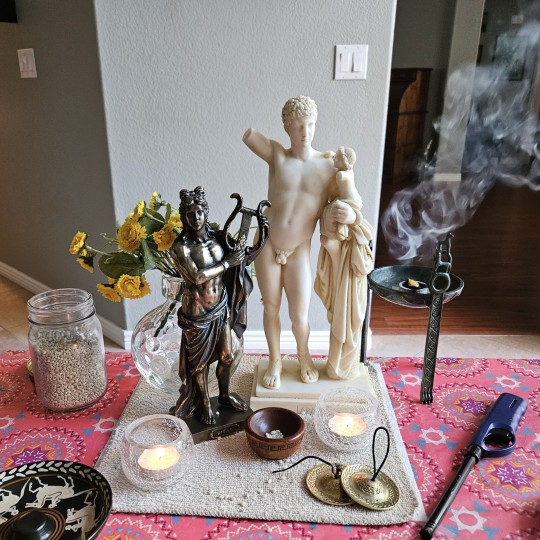
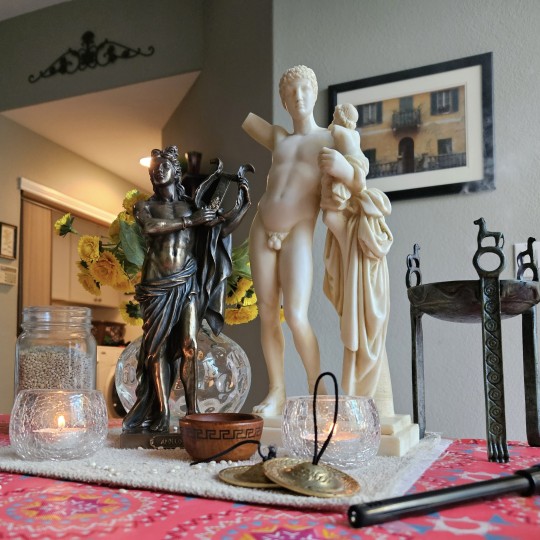
Tending the dining room altar. :)
#Meleagros’s#Hermes#Hermes deity#Apollo#Apollo deity#The Mousai#The Muses#Greek gods#Greek god#Greek goddesses#Greek goddess#Hellenic polytheism#Hellenic polytheist#Hellenic paganism#Hellenic pagan#Hellenic reconstructionism#Hellenic reconstructionist#Hellenic revivalism#Hellenic revivalist#Helpol
411 notes
·
View notes
Text

lips of honey, eyes of fire.
// meleager, tr. by peter whigham, from greek anthology Epigrams
#photography#ph#venice#venezia#q#italy#travel photography#quote#italia#art#orange#meleager#meleagro#epigrams#lit#greek literature#honey#fire#landscape#nature#water#view#travel
291 notes
·
View notes
Text
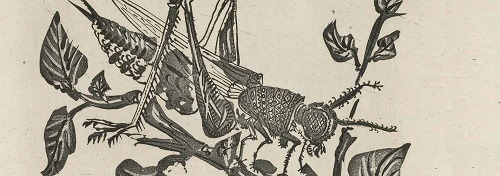
EPIGRAMA FUNERARIO
Aquí yace la verde caballeta que Hele tierna cebó dos estaciones y alas vibraba bajo pies serrados en el codeso, el pino o el arándano.
Se calló ¡ay! la natural forminge, musa de la besana y de las mieses. Pisa ligero, amigo, y no la abrumes no vayas a turbar su sueño leve.
Hela allí, blanca entre el tomillo espeso, la piedra funeraria recién puesta: ¡cuántos hombres no alcanzan tal destino!
Riegan su tumba lágrimas de niña, y la lustra con gotas de rocío cada mañana la piadosa Aurora.
*
ÉPIGRAMME FUNÉRAIRE
Ici git, Étranger, la verte sauterelle Que durant deux saisons nourrit la jeune Hellé, Et dont l’aile vibrant sous le pied dentelé Bruissait dans le pin, le cytise ou l’airelle.
Elle s’est tue, hélas ! la lyre naturelle, La muse des guérets, des sillons et du blé ; De peur que son léger sommeil ne soit troublé, Ah ! passe vite, ami, ne pèse point sur elle.
C’est là. Blanche, au milieu d’une touffe de thym. Sa pierre funéraire est fraîchement posée ; Que d’hommes n’ont pas eu ce suprême destin !
Des larmes d’un enfant sa tombe est arrosée, Et l���Aurore pieuse y fait chaque matin Une libation de gouttes de rosée.
José-Maria de Heredia
di-versión©ochoislas
#José-Maria Heredia#literatura francesa#poesía parnasiana#epigrama#Meleagro#caballeta#muerte#piedad#di-versiones©ochoislas
2 notes
·
View notes
Photo

Atalanta
Atalanta es una figura de la mitología griega famosa por ser una cazadora, luchadora y corredora. La heroína fue una participante clave en la cacería del jabalí de Calidón al que asestó la primera herida con su arco. Atalanta, que había decidido permanecer virgen durante mucho tiempo, finalmente cedió a la presión paternal y aceptó casarse, pero solo con un hombre que pudiera vencerla en una carrera. Al igual que las diosas Atenea y Artemisa, Atalanta es una de esas raras y fuertes figuras femeninas de la literatura griega y aparece con frecuencia en el arte griego en escenas que muestran sus famosas habilidades en la caza y el deporte.
Sigue leyendo...
1 note
·
View note
Text
I can’t thank you enough, Peach! 😭🫶🏻 Quite literally the best purchase of my life
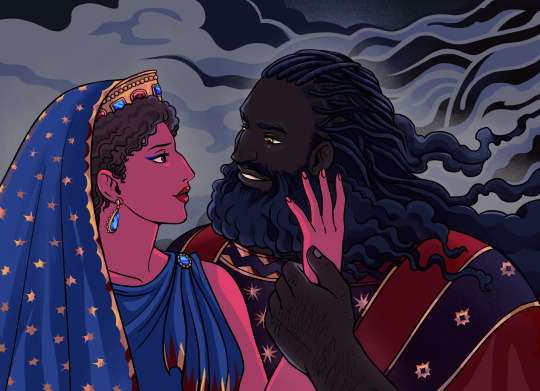
Illustration portrait commission of Zeus Aithiops and Hera for @olympianbutch. ✨
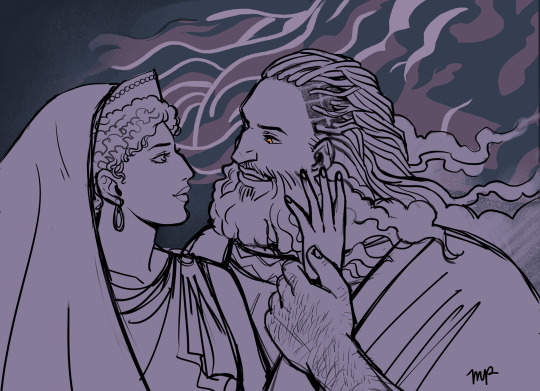
#Meleagros’s commissions#Hera*#Zeus Aithiops*#Zeus*#helpol#Hellenic polytheism#Hellenic polytheist#Hellenic reconstructionist#Hellenic reconstructionism#Hellenic paganism#Hellenic pagan#Hellenic revivalist#Hellenic revivalism
1K notes
·
View notes
Note
I searched to see if you’ve answered this and didn’t see anything so hopefully you haven’t, but I was wondering how you think things would’ve gone if Hephaestion would’ve outlived Alexander. Partially through mourning or if Hephaestion would’ve stayed alive much longer, but also just wondering if he’d be a shoe in for succession. He was the second in command, but just from what I’ve gathered many people seemed jealous of him? For good reason, granted. And you’ve also mentioned before that he was isolated in court. So would he have been able to gather enough manpower and allies quickly while mourning Alexander to even be a successor? Or would he want to be? Though I feel like if he DIDNT he would’ve easily been killed by any of the others for one reason or another, or for being too much of a threat. Obviously there’s no historical evidence for this, but I’m curious
Actually, I did write on this one, but the Tumblr search engine is sometimes (oft times?) less-than-helpful.
If Hephaistion Hadn't Died....
But it doesn't address some of your question, specifically if he'd have been a shoe-in for the succession...
He couldn't be.
NONE of them could have been, unless they were an Argead. That's why there was such a furor at ATG's death: the choices were extremely limited.
Arrhidaios (who had some mental infirmity that rendered him unfit)
An unborn baby that might not be male
A compromise between the infantry and the cavalry finally put both on the throne, if the babe turned out to be male (which he did).
But NONE of the Successors, at least at first, called themselves "kings," even when they sometimes effectively ruled as if they were. As long as Arrhidaios and Alexander IV were alive, no non-Argead could be a king.
See my write up linked above where I suggest that ATG probably wouldn't have died if Hephaistion hadn't. But assuming he did anyway...honestly, there'd have been no doubt Hephaistion, as Chilliarch, would have become regent, especially with Krateros not in Babylon (the only other figure who could have challenged him while he was alive). I also doubt Roxana-Perdikkas would have been able to murder Statiera, so it's quite possible both children would have been born. If both were male, then Statiera's baby, having higher status, would have inherited, Roxana's as the back-up plan. (As just being born male didn't guarantee either would survive to adulthood.) Arrhidaios would have been merely a stop-gap.
Could Hephaistion have held his own against Meleagros (infantry) or Perdikkas (cavalry)? Absolutely. For one thing, he and Perdikkas has worked together before and were likely friends. He was also quite possibly friends with Ptolemy. Same with Lysimakhos and (maybe?) Leonnatos. Meleagros was a dick to everybody, but if the other Marshals backed up Hephaistion, he'd have been forced to back down. Meleagros wasn't nearly as influential as them.
The factions were so fractious (pun intended) in part because Hephaistion's death was recent and Krateros wasn't around.
That brings us to the groups not in Babylon: Antigonos, Antipatros, and Krateros. They would've been far more dangerous to Hephaistion than Meleagros. If Krateros went over to Antigonos (as he did in history), and they both united against Hephaistion, then he'd have had trouble, but I think there just would've been fewer factions, especially if H. controlled all the heirs. He was (imo) smarter than Perdikkas, and more clearly "in charge" by Alexander's own decree. Even if the tension between Olympias and Hephaistion were real, not a later fabrication, while he had her grandbabies, he had her loyalty.
In fact, I think it very possible that Hephaistion would've married either Kleopatra (a widow, but more useful as the full sister) or Thessalonike. I don't think he'd have done so, however, aiming to become king, but to consolidate his position and bind Olympias's faction more tightly to him. He may have also remained married to Drypetis, especially if Statiera's child were male. While that was polygamy, usually reserved for royalty, he may have tried to get away with it, at least for a while. If Statiera had a daughter, however, he'd probably have divorced Drypetis to marry one of the sisters (to avoid a big scandal at having two wives...like a king). As for Eumenes, again, I think he's have followed Olympias's lead.
So we might have wound up with two big divisions, not 4-5. Ha.
Yet I just don't think Alexander would have died, or at least, not so soon.
#Hephaistion#Hephaestion#asks#Alexander the Great#Classics#Effects of mourning on health#Diadochi#What if Hephaistion had lived
22 notes
·
View notes
Text
Reading book 9 of the Illiad, just thinking about how there was a way out- a happy ending for Achillies and Patroculs, they were going to leave, the would live, they could chose another fate; but they werent just doomed by the narrative, they were doomed by who they were. To choose happiness, they would have to be someone else. Patroculs was doomed by his own kindness, and Achillies unknowingly brought that onto him because of his own curiosity (book 11).
AHHHHTHESESBITCHESBESOSADFORWHAT
Also, the erasure is insane-- Yes they're FRIENDS anyways heres a parallel between them and Meleagros and his WIFE.
#book10isafanfiction#the illiad#achilles#patroclus#patrochilles#greek mythology#am i doing this right?
25 notes
·
View notes
Text
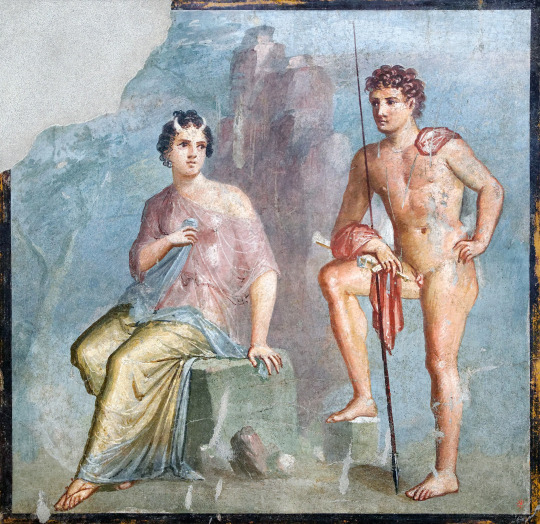
Io wearing bovine horns watched over by Argos on Hera's orders, sala LXXII Casa di Meleagro, Pompeii (VI, 9, 2.13, tablinum 8)
#fresco#greek mythology#pompeii#pompeii fresco#lo#argos#hera#art#european art#southern europe#mediterranean#cradle of civilization#mythology#mythological art#europa#western civilization#fine art#classical art#europe#european#fine arts
82 notes
·
View notes
Text
Personally speaking, I believe she's both the daughter of Zeus and the offspring of Ouranos's castrated genitals. (:
Since the ancients believed their gods operated as a family, it makes sense to me that Aphrodite's assimilation into the Olympian household would've been spurred by Zeus adopting her.
Am I the only one who prefers the Homeric version of Aphrodite's parentage over the Hesiodic account of her origins?
136 notes
·
View notes
Text

I am legitimately intimidated by this Athena I’m drawing 💀
#Meleagros creates#art#my art#lesb0wser is my ig & twt handle :]#hellenic polytheism#helpol#hellenic polytheist#hellenic polytheistic#hellenic reconstructionism#hellenic pagan#hellenic paganism#ancient greek religion#greek gods#greek religion#Athena#Athena worship#athena deity
235 notes
·
View notes
Text

"Anima della mia anima" A.P.V 155
/psychèn tès psychès/ – dichiarazione d'amore del poeta Meleagro di Gadara a Eliodora.
18 notes
·
View notes
Text
Te hablaba del jarrón azul de loza, de un libro que me habían regalado, de las Islas Niponas, de un ahorcado, te hablaba, qué sé yo, de cualquier cosa. Me hablabas de los pampas grass con plumas, de un pueblo donde no quedaba gente, de las vías cruzadas por un puente, de la crueldad de los que matan pumas. Te hablaba de una larga cabalgata, de los baños de mar, de las alturas, de alguna flor, de algunas escrituras, de un ojo en un exvoto de hojalata. Me hablabas de una fábrica de espejos, de las calles más íntimas de Almagro, de muertes, de la muerte de Meleagro. No sé por qué nos íbamos tan lejos. Temíamos caer violentamente en el silencio como en un abismo y nos mirábamos con laconismo como armados guerreros frente a frente. Y mientras proseguían los catálogos de largas, toscas enumeraciones, hablábamos con muchas perfecciones no sé en qué aviesos, simultáneos diálogos. Silvina Ocampo.
#poesía#poemas#poetas#acción poética#libros#books#escritos#frases#citas#notas#literatura#argentina#buenos aires#uruguay#poetry#amor#desamor#pensamientos#sentimientos#arte#silvina ocampo
23 notes
·
View notes
Photo

Cástor y Pólux
Cástor y Pólux, los Dioscuros, son figuras de las mitologías griega y romana, considerados como los hijos gemelos de Zeus o Júpiter. Son figuras semidivinas y se les atribuye el rol de salvar a los que están en peligro en el mar o en la guerra. Se asociaban especialmente con los caballos y los deportes. Estos hermanos tenían una conexión especial con Esparta, y tenían sus propios templos en Atenas y en Delos. Los dioscuros eran los patrones de los caballeros romanos y tenían un papel importante en las ceremonias marciales hasta la época imperial.
Leer más...
1 note
·
View note
Note
Anon, you not being a member of a closed culture is what keeps you from practicing that culture’s closed traditions.
You clearly don’t understand that the deities and spirits of closed cultures are closed because they are the direct ancestors of the communities that venerate them.
It isn’t that you’re being excluded because of your skin color... you’re being excluded because you don’t belong to the communities whose deities and spirits act as their literal relatives.
Closed deities and spirits are not going to entertain you just because you feel entitled to them. They most certainly aren’t going to play nice with you either, since you want to overstep the base guidelines they’re more often than not accredited for establishing in their respective cultures.
So either views can be shared or it's limited to a certain skin color and certain skin colors should "stick with their own traditions" which is racist, what is it?
Also you literally can't stop anyone from worshipping a god, I can walk out of my house right now, buy white sage, and go into Native American spirituality if I wanted. Anyone can do this and you can't stop them because certain races aren't better than others and they don't need to be segregated.
Go learn what "closed" vs "open" means in religion and do not send such disrespectful shit to me ever again.
Yikes! White supremacy is overwhelming in your reply.
53 notes
·
View notes
Text
«Los dados de Eros. Antología de poesía erótica griega», de Aurora Luque (ed.)

Volví a lanzar los dados con Hiperión, y esta vez tuve suerte: a diferencia del libro de poesía arcaica griega no épica y de varios otros que he leído, esta edición de poesía erótica sí que está buena. Si bien la introducción no es demasiado larga, cumple con dar una idea general del concepto del erotismo (aquí se entiende en su sentido amoroso y no sexual, o al menos no únicamente) y de su utilización en la poesía griega antigua. También contiene un apartado con algo de información de cada autor (de su falta me quejé en el otro libro) y se incluye la fuente de la que está tomado cada poema. Por último, la selección también es buena: es bastante amplia en cuanto a extensión temporal (siglos VIII a. C. a VI d. C.) y se incluyen tanto poetas conocidos (también los dramaturgos) como poco conocidos o menores. Lo único que sí voy a criticar es que la información vaya al final del libro en lugar de ir al comienzo, porque se vuelve un poco incómodo tener que retroceder cada vez (aunque de todas maneras lo recomiendo hacer).
Algunos poemas. Los títulos fueron puestos por la traductora.
Meleagro
“Ola amarga”
—Ola de amor amarga, celos que me alentáis sin desaliento, alta mar del deseo tormentosa ¿adónde me arrastráis? Desgobernado queda sin remedio el timón de mi pecho. ¿Divisaré otra vez la sensual Escila…?
“Huella de labios”
El vaso está gozoso, pues dice que ha rozado, de Zenófila la apasionada, el borde de su boca chispeante. Afortunado, sí. Ojalá que aplicando sus labios a los míos se bebiera de un sorbo la vida que me anima.
Crates de Tebas
“La solución”
A la pasión el hambre la liquida, si no, el tiempo. Pero si estos te fallan, una cuerda.
Menandro
“Los impuestos de Eros”
¿No es Eros el más grande de los dioses y el que más se venera por encima de todos? Pues nadie llega a ser tan ahorrativo y tan estricto con sus sentimientos que no tribute al dios con parte de su vida. Para unos es benévolo, les obliga a pagar cuando son jóvenes; los que hasta la vejez aplazan el impuesto esos aparte abonan réditos de la edad.
Teognis
“Un cierto deleite”
El amor por un chico es hermoso tenerlo, y es hermoso declinarlo también; más fácil es hallarlo que llevarlo a buen fin. Mil males penden de él, pero también mil bienes: precisamente en esto hay un cierto deleite.
“Odi et amo”
En cuanto a tu querer, mi voluntad lo tiene complicado, y es que no puedo odiarte ni quererte. Bien sé que es muy difícil cuando alguien se hace amar odiarlo, mas también es difícil amar al que no otorga.
Anacreonte
“El joven auriga”
—Jovencito que tienes una mirada virgen trato de conseguirte, pero tú no me escuchas. Y es que no eres consciente de que en tus manos llevas las riendas de mi alma.
Íbico
“A las redes de Cipris”
Vuelve a mirarme Eros con sus pupilas lánguidas que asoman bajo párpados oscuros y con miles de gestos seductores a las redes de Cipris sin salida me arrastra. Tiemblo cuando se acerca como añoso caballo de carreras que al llegar a la vejez uncido a carros rápidos sin quererlo marchara hacia el certamen.
Alcmán
“Astimelesa” (fragmentos)
Con un deseo que desmaya el cuerpo dirige una mirada que hace desfallecer más que el sueño y la muerte: sin vanidad alguna, es ella dulce. Si acaso viniera y me tomara de la tierna mano, yo al instante sería un suplicante suyo.
Arquíloco
“Cumplidor”
Y caer, cumplidor, sobre el odre y ajustar el vientre sobre el vientre y los muslos encima de los muslos.
“Niebla en los ojos”
Un ansia tal de amor al corazón metió en un torbellino y derramó en los ojos niebla espesa robándome del pecho las más tiernas entrañas.
4 notes
·
View notes
